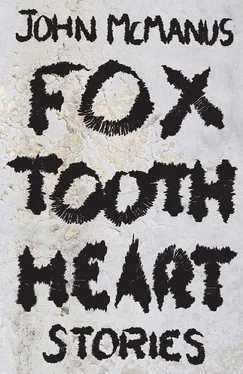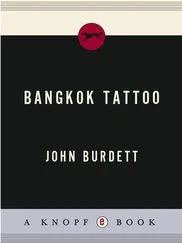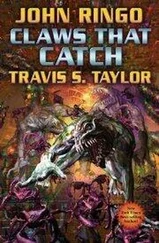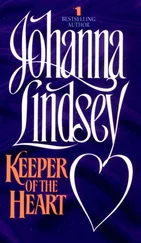“Let’s go driving,” he said, over the game’s screaming metalcore theme music.
“You know, cars are okay, but they’re not my life.”
“You know, you used to be fun to hang out with.”
“Doesn’t Milo get you to thinking?”
Caidin’s blood went leaden. “What is your life, then? Video games?”
“My life’s bigger than one thing, Caidin.”
“Why would speedometers go to 120 if we shouldn’t drive 120?”
Jeff didn’t seem to have an answer. Whatever, thought Caidin, pushing himself upright. His mutant stood still. He swung his foot. The death growls and guitar riffs ceased. NO INPUT , said a blue screen after the Xbox had hit the wall, and then he was flying west on the Katy Freeway.
He bought an eighth of weed from his brother’s dealer. To cruise around smoking it felt way better than sitting in Jeff’s bedroom. Tousling his bangs, he looked in the rearview. He would grow his hair out, install new subwoofers, and buy a whole ounce when the eighth was gone. He did all three. High on the first day of school, he sat in back with crossed arms like some regular middle-quartile kid. When teachers called his name, he waited a few seconds before saying “Here.” People liked it. There was a blond girl named Astrid who reminded him of a seahorse. Every day he would catch her glancing at him. After a week he was holding her hand. She was friends with some jocks who’d turned to drugs. At the Galleria after school they all ate sugar-cube acid together. Hank, the second-string quarterback, climbed the Water Wall with his girlfriend Izzy, laughing as the police pulled them down. That was the trick — not to care. They piled into the Porsche, whose wheel felt alive: Caidin had only to think of steering, and the car sped onto I-610.
“Beach?” he asked, thinking he’d get them there faster than ever. Here was his chance to show how little he cared.
“It’s too hot for shirts,” said Izzy, pulling hers off. “Astrid, hold the wheel.”
When Caidin took his shirt off too, they cheered as if he’d shed his training wheels. Half-naked they played Twenty Questions, Izzy going first. An animal, in Texas, bigger than the car, and there was only one.
“Your mom,” he said. Izzy laughed. On his new friends’ wavelength, he could set the cruise control at seventy and restrain the urge to prove what he was made of.
“Shamu,” said Hank, and Izzy said yes. They kissed.
“Every SeaWorld has a Shamu,” Caidin said. “When one dies, they capture another one and name it Shamu.”
“There’s other SeaWorlds?” said Astrid, who had stopped looking like a seahorse to him. It didn’t matter. He stole glimpses of Hank in the mirror, stole more of them at the beach, sitting on sand in their underwear as derricks swayed.
“There’s a hurricane out there,” Izzy said, which Caidin took to be a metaphor.
“Did you know Juaco Luna?” he asked her.
“Yeah, he kissed me, and it was amazing. Hank, if Juaco Luna comes back from El Salvador, I’m dumping you.”
“He’s from Honduras,” Caidin said, wishing he hadn’t asked. They stared out to sea, Astrid’s hand feeling like warm dough in his. “Storm’s coming,” Izzy said again. Say what you mean, Caidin thought, but it turned out to be real. Back at Hank’s they watched it assault the Gulf Coast. New Orleans was five hours east, three if you drove like Caidin, and he suggested going to see it. Instead they smoked pot and lay on Astrid’s bed. When she touched him, pretending to like it was easy; he just touched her back in the same places. After two days of that, he asked when they would be returning to school.
“School’s out of the question.”
“We’re in the ninety-fifth percentile,” he said.
Hank and the girls looked at each other and giggled.
“My parents got me in,” Hank said, “just like yours got you in.”
“No, I’m in the ninety-eight-point-fourth percentile,” said Caidin, feeling a sudden urge to see his mother.
He made up an excuse to leave. But when he arrived home, he found a note for him and the maid that the Maddoxes were in Dallas.
Smoking a joint, he searched Diaryland for boys named Juaco — nothing — and then Milo — dozens, all alive. He searched for ones who wanted to kill themselves, and these were easy to find. Every other boy on Diaryland wished to die. Their heroes were Kurt Cobain, Jim Morrison, the kid who’d perished on a bus in Alaska. Most wrote with indistinguishable dreamy fatalism, but one called Timescale aspired to a wholly original death: floating in a balloon into a wildfire; sailing to Antarctica to walk nude into its tundra; coating himself with sugar and lying down among fire ants. Caidin tried to concoct some outlandish methods of his own to post in a comment. He couldn’t come up with any, and besides, Timescale would ask why he wanted to die, when he wanted only to talk. He dialed his brother’s number. Busy bombing Ramadi, Caleb didn’t answer, not like Caleb was any fun anyway. If he were home, he would only be drinking vodka with his stupid girlfriend. He’d never even taken Caidin out in the Porsche.
For first period the next day, the principal called an assembly. Refugees were pouring into Houston, she said, and some would be enrolling at their school. A few had arrived already. At lunch they hung out in the parking lot by their souped-up cars. These didn’t seem like people to be trifled with, but Caidin was lonely enough to saunter over. “How fast will that thing go?” he asked about a Charger.
“You are?”
“Caidin Maddox.”
“And you drive?”
“A Porsche Carrera.”
Their glances at each other seemed to say, People are the same everywhere you go. “You want to race?”
“Sure, that sounds fun,” Caidin said.
“When I go fast, the cops stop me.”
“So you don’t want to?”
“What rules do you propose?”
“Forget it,” he said, and headed to Astrid’s, where she and Izzy lay on her bed packing a bong. “How was school,” mocked Izzy; “what did you learn?”
“There’s these refugees from Katrina.”
“God knows what percentile.”
When they laughed, he couldn’t tell if it was at the refugees or at him. “They can have our textbooks,” Astrid said. “We’re joining the Rainbow Gathering.”
“Then they can have mine too.”
She sat up and kissed him. “We didn’t think you’d come.”
“Why not,” he said, knowing none of them would be joining a thing.
His mood improved when Hank showed up with some ecstasy. Soon he could feel an intense, beautiful love for Astrid and everyone rolling across his shoulders. He apologized for going to school. “Let’s bet on when my folks realize I’ve dropped out,” he said, and Izzy bet next week and Hank October and Astrid never. The less you cared, the better you looked and the better you felt. He stared in the mirror at the bones lurking under his skin, trying to watch the concern dissolve away.
“I bet my eighteenth birthday,” he said, “when they learn that I’ve become ineligible for the Air Force.”
“I want go on a drive,” Izzy said, which sounded great, but Hank and Astrid only stared up from the bed.
“Get in,” he told Izzy, and aimed the two of them fast as ever toward the distant thunderheads. “You don’t love Astrid,” Izzy said while they raced across endless ranchland, “and I don’t love Hank. Let’s go to Bozeman.”
Afraid she was about to profess her love for him, Caidin said, “Bozeman?”
“Milo’s parents moved there when he died. I can’t find their number, so I figured we’ll just show up.”
Recalling her report of Juaco’s kiss — it had been amazing — he said, “How would you know who I don’t love?”
Читать дальше












